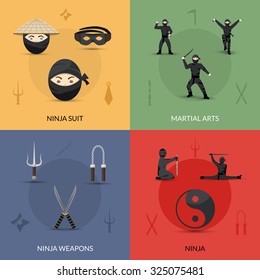Traditional Martial Arts Vs. Modern Combat Sports: Understanding The Key Differences
Traditional Martial Arts Vs. Modern Combat Sports: Understanding The Key Differences
Blog Article
simply click the following page -Thuesen Rocha
When you think about martial arts, do you lean extra toward the conventional techniques or the modern fight sports? adriano emperado kajukenbo provides distinct benefits and experiences, shaped by their approaches and training approaches. https://augustdjige.wssblogs.com/34339654/just-how-to-choose-the-most-effective-karate-courses-a-resource-for-aspiring-martial-artists emphasize individual growth and self-control, while contemporary combat sports focus on competition and performance. Understanding these differences can assist you in choosing the right method for your trip. But exactly how do these distinctions manifest in training and approach?
The Approach and History Behind Standard Martial arts
While many people connect martial arts with physical combat, the approach and background behind typical martial arts run much deeper. You'll locate that these self-controls highlight personal growth, discipline, and respect.
Originating from old practices, traditional martial arts were typically established for Self-Defense and spiritual growth. They personify concepts such as equilibrium, harmony, and self-control, directing experts past mere fighting skills.
As you train, you'll not just learn methods yet also gain understandings into the society and worths that formed these arts. The routines and customs, typically passed down via generations, promote a sense of community and belonging.
The Affordable Nature of Modern Fight Sports
Modern fight sporting activities have transformed the landscape of martial arts into a very affordable sector, where professional athletes face off in an examination of ability, technique, and endurance.
You'll observe that competitors are commonly arranged with rigorous regulations and policies, making certain fair game and safety and security. These events draw in large target markets, fueling the enjoyment and intensity of matchups.
Professional athletes train carefully, not just for physical expertise but additionally for mental sturdiness, recognizing that every detail counts in the ring. The adrenaline thrill throughout competitions is apparent, as fighters press their limitations to declare triumph.
Followers value the athleticism and creativity included, making modern fight sporting activities a thrilling spectacle that continues to evolve and mesmerize enthusiasts around the world.
Training Techniques and Techniques: A Comparative Evaluation
The affordable ambience of modern-day combat sporting activities needs cutting-edge training methods that differ considerably from typical martial arts.
In modern training, you'll focus on details methods, competing, and conditioning, frequently utilizing drills that mimic genuine battle circumstances. You'll see a focus on measurable performance and constant competition to assess your abilities.
On the other hand, conventional martial arts focus on forms, katas, and thoughtful teachings, frequently stressing self-control and respect over competition.
Training is typically much less intense and may involve recurring practice instead of real-time sparring.
While both methods develop skill and fitness, modern-day battle sporting activities provide an extra dynamic and adaptable training atmosphere, preparing you for immediate difficulties in the ring or cage.
Read the Full Article that straightens with your objectives and passions.
Verdict
In choosing in between typical martial arts and modern-day fight sports, it truly boils down to what you value most. If you're looking for individual growth, self-control, and a feeling of community, traditional arts could be your finest fit. However if you prosper on competition and real-time challenges, modern fight sports could be the means to go. Inevitably, both courses provide unique benefits, so it's everything about straightening your training with your personal objectives and passions.
